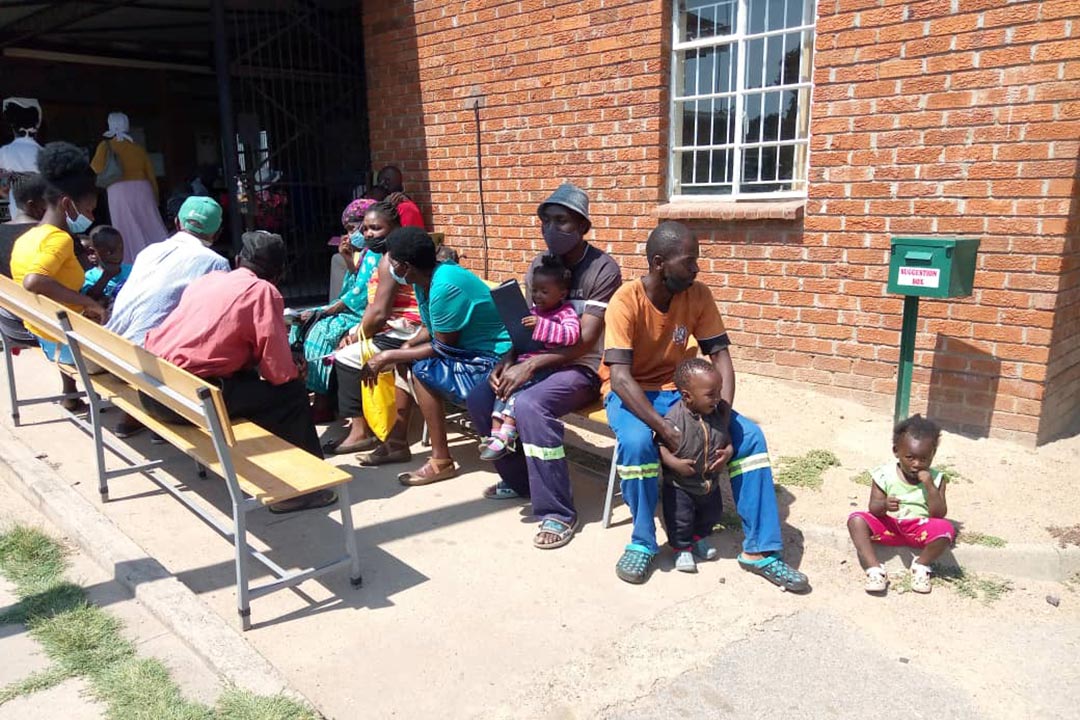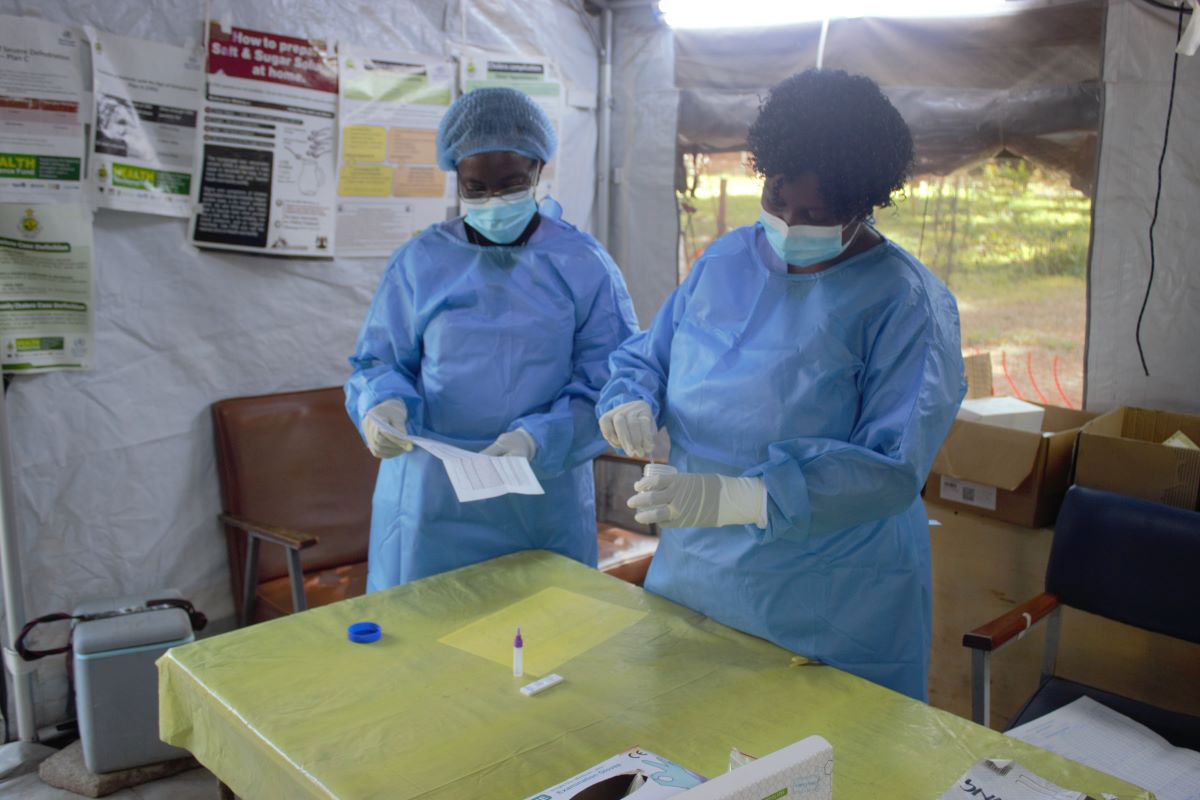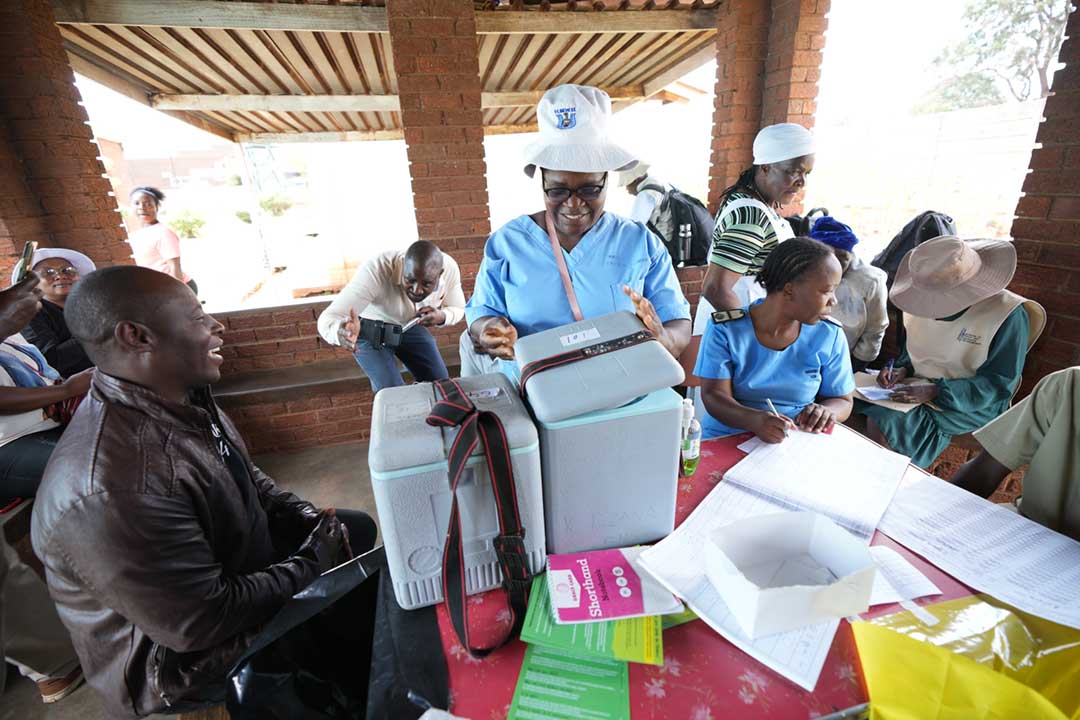Fathers for immunisation: getting men involved in Zimbabwe’s routine immunisation push
- 11 November 2021
- 3 min read
- by Elia Ntali

In Zimbabwe, women are normally associated with taking children for routine immunisation. To get more fathers involved, local clinics are giving preference to men coming with children for immunisation.
According to Sister Fiona Machekano, a senior nurse at a clinic in Harare, the initiative is bearing fruit, with more men are embracing the importance of routine immunisation.
“Being involved in the immunisation of my child is a way of helping my wife and playing the role of a caring father.”
“In the past, we saw mainly women coming with their children for routine immunisation. We have seen that women are vulnerable to violence and bullying, particularly in the home, leading some to miss immunisation schedules. The campaign is bearing fruit as more men are coming with their children. Most of them were not aware of the importance of these vaccines. The uptake of routine immunisation by fathers is very encouraging. We have been receiving an average of 50 fathers a week and, hopefully, more men will get involved.”
Thirty-nine-year-old Elvis Makuyana, a father of three, says that he never understood the importance of routine immunisation until an awareness campaign on its importance.
“I never took routine immunisation seriously and I had no knowledge of its importance until some health care workers explained its importance during an awareness campaign. As a result, I have been religiously taking my six-month-old baby. I now understand the importance of vaccination against measles and other diseases. Routine immunisation has become part of my life.”
Have you read?
Another father, Joshua Shambare, says he has taken on the responsibility of taking his one-year-old child for immunisation because his wife is often tied up with work.
“Being involved in the immunisation of my child is a way of helping my wife and playing the role of a caring father. I have accepted the role of taking my son for immunisation. With his mother busy at work, I cannot delegate these duties, of taking my son for immunisation, to someone else.”
Of the experience, Shambare says, “It took me less than 20 minutes for my child to be weighed and immunised. I have enjoyed it and I can safely say that I now understand the importance of immunisation. Even when his mother is available, I make sure that I accompany her to the clinic and I take note of the next visit.”
He adds: “Child vaccination is an effective way of preventing illnesses and deaths in children. For this reason, I am now religiously following the schedule. If there is more uptake from men, our communities and children will be safe.”
Zimbabwe’s vaccination schedule starts at birth with the administering of primary courses which include the Bacille Calmette-Guérin (BCG) and hepatitis B vaccine. Other primary courses are administered between the ages of six weeks to nine months. Boosters are administered from 18 months up to the age of 10 years.









